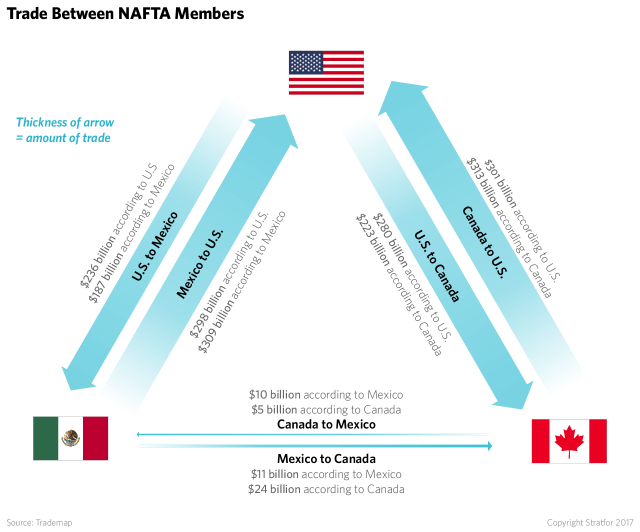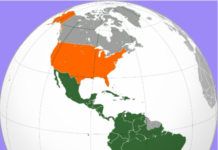As U.S. President Donald Trump pursues his goals, the disparities between the NAFTA members’ negotiating positions will become starker. This is, in part, because the economic integration furthered by NAFTA across the northern U.S. border looks vastly different than that to the south.
As in the United States, Canada’s mid- and high-end manufacturing industries remain competitive, with most citizens employed in the services sector. As a result, the countries’ bilateral trade relationship is robust and generally balanced. In 2015, for example, Canada and the United States conducted roughly $581 billion in trade, with the U.S. trade deficit amounting to just $21 billion. In fact, when ignoring the energy trade balance, the United States has enjoyed a small trade surplus with Canada every year since 2007. Moreover, the two are becoming more integrated in energy markets. Thus, while the shale oil boom has contributed to a decline in the U.S. energy trade deficit with Canada, it has not reduced Canada’s own market share in the United States.
The United States and Mexico likewise enjoy a robust trade relationship exceeding $500 billion annually, but that’s where the similarities to the U.S.-Canada partnership end. By contrast, though the United States and Mexico have also pursued energy integration, the energy sector has never been a core driver of the U.S. deficit with Mexico. In fact, the United States posted a substantial surplus in such trade in 2015. The main issue is Mexican manufacturing, principally of automobiles, electronics and related sectors. (The trade balance is a little bit misleading because of Mexico’s position near the end of most U.S.-bound supply chains. Mexican manufacturing is heavily focused on assembly, meaning a larger share of its U.S.-bound exports are counted as high-value goods compared with other manufacturers’.)
Meanwhile, scant trade takes place between Mexico and Canada, amounting to $20 billion to $30 billion annually. Accordingly, the disputes between the two countries have been relatively small, over topics such as visa regulations. The dearth of economic ties binding Mexico and Canada further underscores the awkward marriage of their respective trade relationships with the United States under NAFTA rules. It also means that neither has substantial interest in joining forces against the United States as it seeks to reformulate the pact. Just as Washington’s criticisms against them differ, so too will their strategies and demands.





